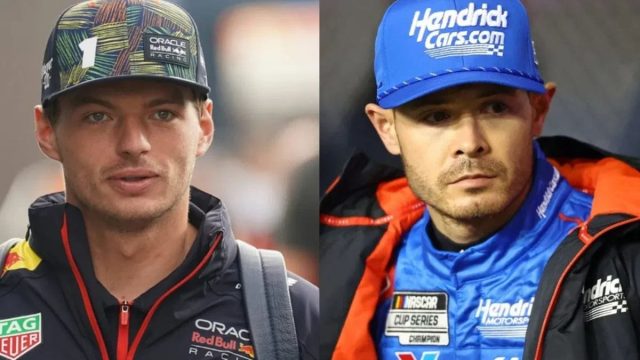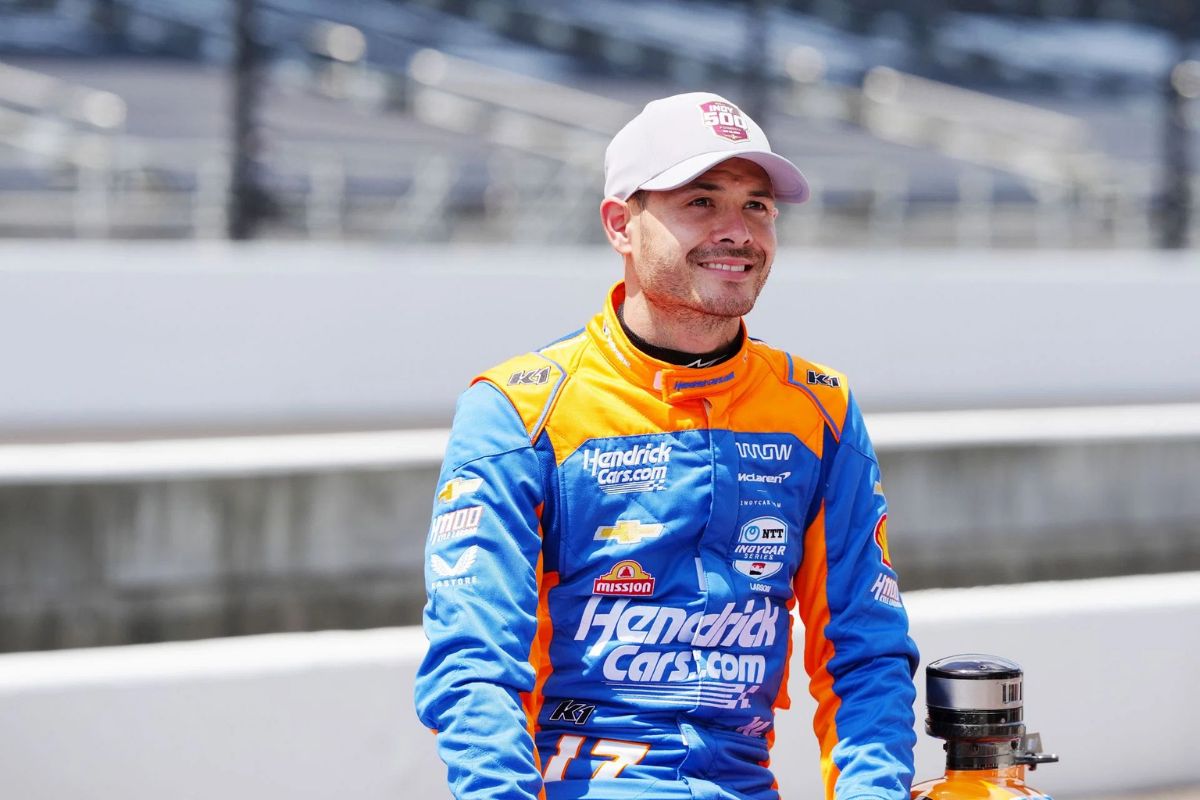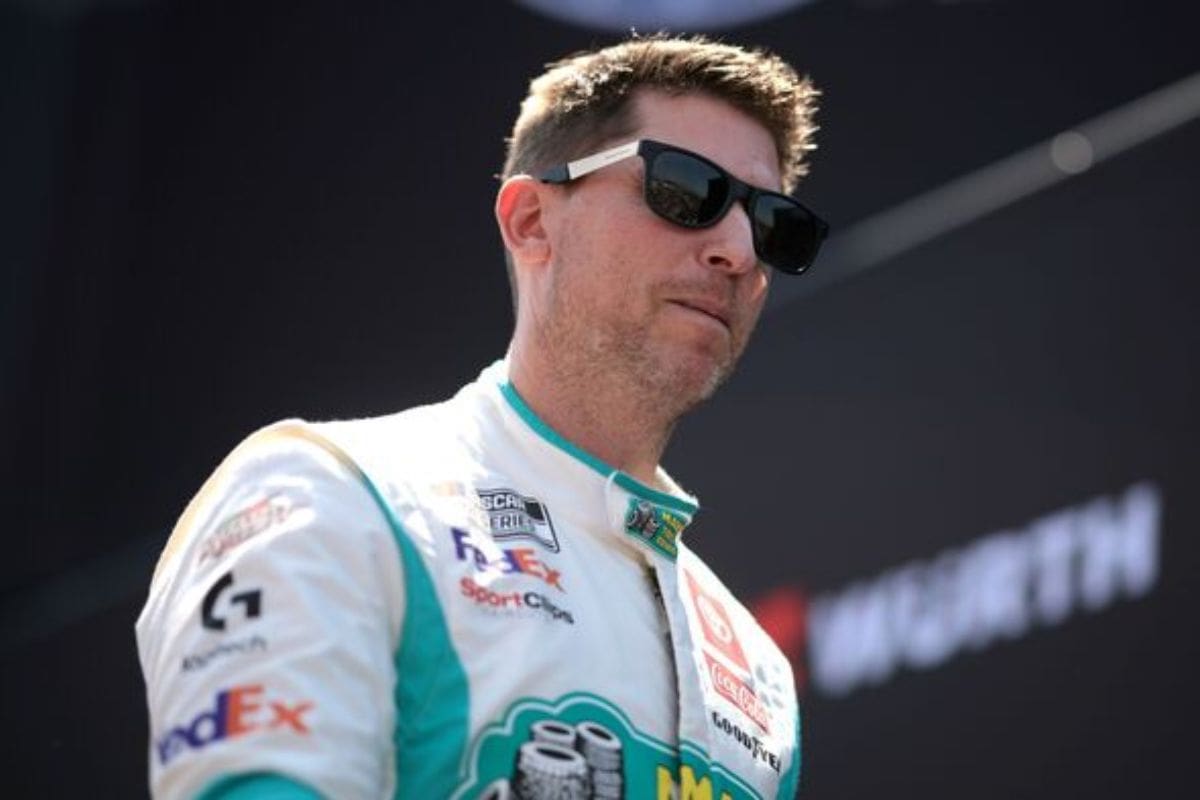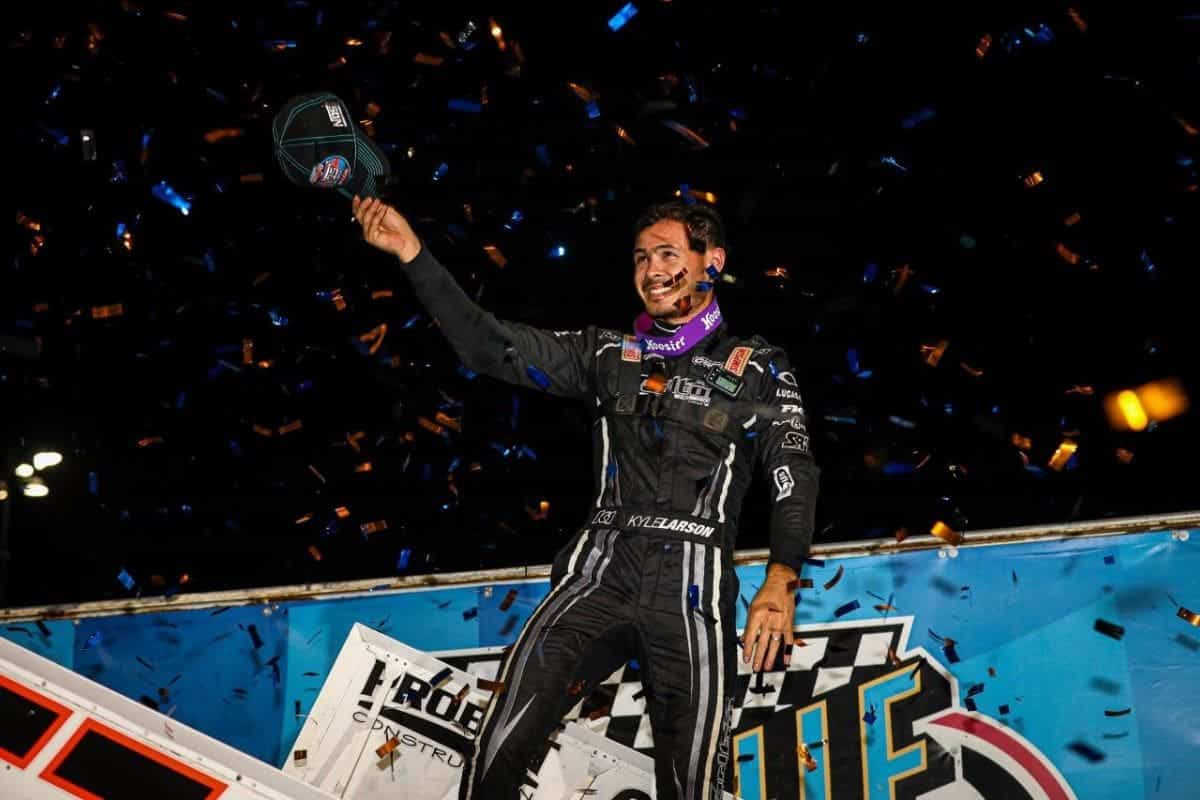Kyle Larson Failed to Meet Verstappen: Denny Hamlin‘s assertion that Kyle Larson has fallen short of the elite standards exemplified by Max Verstappen raises questions about the nature of competitiveness in motorsports. While Larson’s multifaceted skills are commendable, his recent 14th place finish at Michigan has ignited a debate about consistency versus versatility among top-tier drivers. Hamlin’s critique reflects a broader sentiment regarding elite athlete comparisons and highlights the inherent challenges each driver faces within their specific racing environments. What implications might this have for Larson’s future, and how do these standards shape the narrative of success in an increasingly competitive field?
Key Highlights
- Denny Hamlin supports Verstappen’s elite status, emphasizing the unique skills required for Formula 1 compared to NASCAR’s demands.
- Larson’s 14th place finish at Michigan raised doubts about his elite status and his ability to compete with Verstappen.
- Critics question Larson’s consistency and performance, highlighting his struggles during the Michigan race as a significant concern.
- Hamlin argues that cross-discipline comparisons, like between Larson and Verstappen, lack relevance due to the distinct nature of each racing format.
- The fallout from Larson’s disappointing results could impact his reputation and future performance in NASCAR, increasing scrutiny from fans and analysts.
The Origin of the Comparison Between Max Verstappen and Kyle Larson
In the realm of motorsport, comparisons often arise as fans and analysts seek to evaluate the skill of drivers across different disciplines. The recent discourse between Formula 1’s Max Verstappen and NASCAR’s Kyle Larson highlights this phenomenon. The origin of their rivalry can be traced back to Larson’s assertion that his varied racing experience positions him as a superior driver to Verstappen. His résumé spans multiple formats, including Dirt Car Racing, IndyCar, and the NASCAR Xfinity and Cup series, showcasing his adaptability across distinct racing environments.
Larson’s claim reflects a broader narrative within motorsport, where versatility is often equated with superiority. He contends that the ability to excel in multiple formats demonstrates a thorough understanding of racing dynamics, a view that resonates with fans who value cross-disciplinary success. However, this assertion inevitably invites scrutiny, particularly from enthusiasts of Formula 1, where the precision and specialized skill required to navigate the complexities of a circuit can be unmatched.
Verstappen responded with commendation for Larson’s abilities while refraining from direct comparison, suggesting a level of respect and acknowledgment of differing specializations. This divergence in approach highlights not only the subjective nature of such comparisons but also the unique contexts in which each driver operates.
As discussions unfold, figures like Denny Hamlin are drawn into the fray, further enriching the dialogue surrounding the merits and limitations of cross-discipline comparisons in motorsport. The debate is as much about personal pride as it is about the evolving narrative of racing excellence.
Denny Hamlin Appears to Lean Towards Verstappen
Denny Hamlin, a seasoned competitor in NASCAR, appears to align himself more closely with Max Verstappen in the ongoing debate surrounding the skill of Kyle Larson. This viewpoint is highlighted by Hamlin’s own competitive experiences against Larson, where he has consistently emerged victorious in their six head-to-head encounters.
While Larson exhibits remarkable agility and dominance, particularly on oval tracks, Hamlin’s strength lies in his balanced and consistent racing style. This intricate distinction serves as a backdrop for Hamlin’s comments on the Actions Detrimental podcast.
During a discussion about the Larson versus Verstappen debate, Hamlin wisely cautioned against overestimating Larson’s capabilities in the context of Formula 1 racing. He acknowledged, “Man, those F1 guys are good, so I just would temper those expectations.”
“I guess Kyle probably brought it on himself by saying he was better. Man, those F1 guys are good, so I just would temper those expectations. I mean why don’t we just say that Kyle’s better on ovals and Max is better on road course. Can we just leave that as a blanket.” – Hamlin
This statement reflects Hamlin’s respect for Verstappen and his peers and suggests that he recognizes the unique skill set required to excel in different racing formats. By proposing a more equitable comparison—arguing that Larson excels on ovals while Verstappen thrives on road courses—Hamlin advocates for a balanced understanding of their respective talents.
In doing so, Hamlin positions himself as a voice of reason amidst the fervor of the debate, emphasizing that each driver shines in their own environment. This perspective not only reinforces Hamlin’s credibility as a seasoned racer but also adds depth to the conversation about the evolving nature of motorsport excellence.
Hamlin’s Respect for Formula 1 Drivers
Amidst the competitive landscape of motorsport, Denny Hamlin’s profound respect for Formula 1 drivers stands out as a tribute to the distinct challenges and skills inherent in different racing disciplines. Hamlin articulates a clear understanding of the elite nature of F1 competitors, acknowledging their unique abilities and the rigorous demands of their sport. He remarked, “They’re not running the same thing we’re running…the F1 guys are elite, elite.” This recognition highlights the technical skill and adaptability required to excel in a vastly different environment than that of NASCAR.
“They’re not running the same thing we’re running and I just I mean those the F1 guys are elite, elite. So, I wouldn’t try to throw shade on any of them because more than likely with any kind of reps especially on a road course even if it’s in a stock car they’re probably going to be pretty damn good.” – Hamlin
The differences between the two racing formats are considerable, yet Hamlin expresses a hopeful sentiment regarding cross-discipline participation. He specifically mentions Lewis Hamilton as a potential candidate for a NASCAR start, hinting at the intriguing possibilities that could arise when elite drivers from different domains of motorsport converge.
Hamlin’s Thoughts on the Futility of Comparing Athletes Across Different Sports
Frequently, discussions arise around the merits of athletes across diverse sports, yet Denny Hamlin firmly believes such comparisons lack relevance and context. He argues that the unique demands and skill sets required in each sport render cross-sport comparisons futile. Hamlin compares the exercise to comparing apples and oranges, emphasizing that athletes thrive in their respective disciplines for very different reasons.
Using a basketball analogy, Hamlin demonstrates his point by contrasting the careers of Kyle Larson and Max Verstappen. He asserts that while Larson would certainly excel against Verstappen in a dirt sprint car race—given his extensive experience in that specific arena—such a scenario is merely a reflection of specialized expertise rather than a meaningful comparison of athletic ability.
“Kyle Larson definitely would beat Max Verstappen in a dirt sprint car race because that’s what Kyle Larson has been doing for forever. And that’s a silly argument, I guess it’s just not you just can’t compare the two. Michael vs LeBron at least it’s like comparable. They play the same sport right and yes rules change but like you can compare stats because it’s the same sport.” – Hamlin
In contrast, he acknowledges that discussions around athletes like Michael Jordan and LeBron James hold merit, as they compete in the same sport, allowing for a more relevant statistical analysis and context.
Hamlin’s perspective urges fans and analysts similarly to recognize the distinct nature of each sport. He posits that the intrinsic qualities, rules, and conditions governing different athletic competitions make it impractical to draw parallels between athletes’ achievements.
Criticism and Doubts After Larson’s Performance at Michigan
Following a lackluster performance at the Michigan International Speedway, Kyle Larson faced increased scrutiny regarding his status as one of NASCAR’s elite drivers. The FireKeepers Casino 400, which concluded with Larson finishing 14th, vividly contrasted his season average of 11.73, raising questions about his racing skill. Critics were quick to point out that Larson’s struggles at Michigan were representative of a larger concern: whether he truly merits comparisons to Formula 1 superstar Max Verstappen.
In the aftermath of the race, voices from within the NASCAR community, including Denny Hamlin and Kevin Harvick, weighed in on Larson’s capabilities. While Harvick emphasized Larson’s versatility as a driver, contrasting it with Verstappen’s singular focus in F1, the disappointing result at Michigan led many to reconsider these assertions.
Larson’s uncharacteristic performance, exacerbated by on-track incidents and poor positioning during restarts, highlighted vulnerabilities that critics seized upon. The once-unstoppable #5 car appeared lost, a shadow of the driver who had previously dazzled fans with his talent.
This performance has ignited a backlash against Larson, with skeptics questioning the legitimacy of his elite status. The incident serves as a reminder of the relentless scrutiny that athletes face, particularly when they are compared across different racing disciplines.
As Larson navigates the fallout from Michigan, the implications of this race could resonate throughout the NASCAR community, challenging his standing as a top-tier driver.
News in Brief: Kyle Larson Failed to Meet Verstappen
Denny Hamlin’s critique of Kyle Larson emphasizes the complexities of evaluating driver performance across different racing disciplines. While Larson’s versatility is commendable, his recent inconsistency, particularly evident in the Michigan race, raises questions regarding his elite status in comparison to drivers like Max Verstappen. The contrast highlights the unique challenges intrinsic to each racing format, suggesting that direct comparisons may oversimplify the distinct skills required for success in differing motorsport arenas.
ALSO READ: Max Verstappen Responds to Kyle Larson’s Challenge: “Everyone Is Good in Their Own Right”



